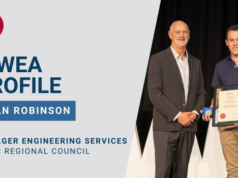It was heartening to see the Federal Government commit significant funds to infrastructure in its recent Budget: some $15 billion for major projects plus $1 billion nationally for local road infrastructure and $1 billion nationally for road safety upgrades. However, the Morrison Government must also commit to supporting training and accreditation – otherwise, Australia won’t have workers with the necessary skills to fulfil its infrastructure aspirations.
Although the $15 billion has already been allocated to a range of ‘shovel ready’ projects, it’s not too late to make skills development a funding priority, both now and in coming budgets.
For infrastructure projects that the Federal Government administers, a portion of the allocated funds could be ring-fenced to make sure the workforce is adequately trained. For major projects that are being administered at the state level, the Government could make a skills-development component a condition of receiving the funding.
The Government will also soon be deciding which local councils will receive a share of the $1 billion it has committed to its Road Safety Program and the $1 billion committed to its Local Roads and Community Infrastructure Program. This is a prime opportunity to engage Australia’s existing municipal workforce in additional training.
How IPWEA can help
IPWEA represents about 5,000 members in Australia and New Zealand, and about 60 per cent of our membership works in the local government sector. Many, if not most, of the local councils in line to receive this Federal funding have IPWEA members on staff.
That’s one reason why we are encouraging the Federal Government to consider using IPWEA’s suite of training programs to develop the skills of local-government employees. The courses draw on IPWEA’s respected International Infrastructure Management Manual (IIMM), which has been setting benchmarks for asset management since 2000, and on our other highly regarded publications. Because our members already have a familiarity with these texts, IPWEA-devised courses would be a particularly effective way to develop their skills.
The South Australian Government’s recent collaboration with IPWEA to provide asset-management training to local councils is one example of how the Federal Government could roll out skills development across the country.
The initiative saw the delivery of IPWEA’s Asset Management Foundations course to key staff at six of the smallest councils in SA. Funding was provided both by the state government and by the Local Government Association of South Australia (LGASA), with the LGASA administering the program.
The course was delivered online, reducing cost, and those being trained were able to complete much of the work in their own time. Participants acquired knowledge and skills that will allow them to drive innovation and improve efficiency at their councils for years to come.
The Federal Government could use a similar model to deliver training to local councils or to contractors working on specific infrastructure projects. Doing so would better equip Australia to build and manage the infrastructure that we all agree is vital to the nation’s ongoing prosperity.














